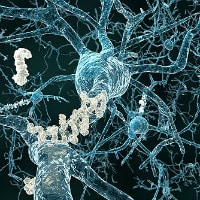Diseases caused by protein aggregation – including Alzheimer’s Disease and certain cancers – remain largely without effective treatment. Gal Bitan, from University of California/Los Angeles (UCLA; California, USA), and colleagues have devised “molecular tweezers” that are able to attack aggregated proteins while leaving healthy proteins intact. The researchers are testing multiple versions of the tweezers, each with a slightly different molecular makeup. For CLR01, one of the most promising versions, the researchers have demonstrated therapeutic benefits in two rodent models of Alzheimer’s disease, two fish and one mouse model of Parkinson’s disease, a fish model of spinal cord injury and a mouse model of familial amyloidotic polyneuropathy, a rare disease in which protein aggregation affects the nervous system, heart and kidneys. The study authors are hopeful that their findings: “provide important insights into therapeutic development of molecular tweezers for [Alzheimer’s Disease] treatment.”
The Dark Side of Proteins
Zheng X, Liu D, Klärner FG, Schrader T, Bitan G, Bowers MT. “Amyloid [beta]-Protein Assembly: The Effect of Molecular Tweezers CLR01 and CLR03.” J Phys Chem B. 2015 Mar 16.
RELATED ARTICLES




